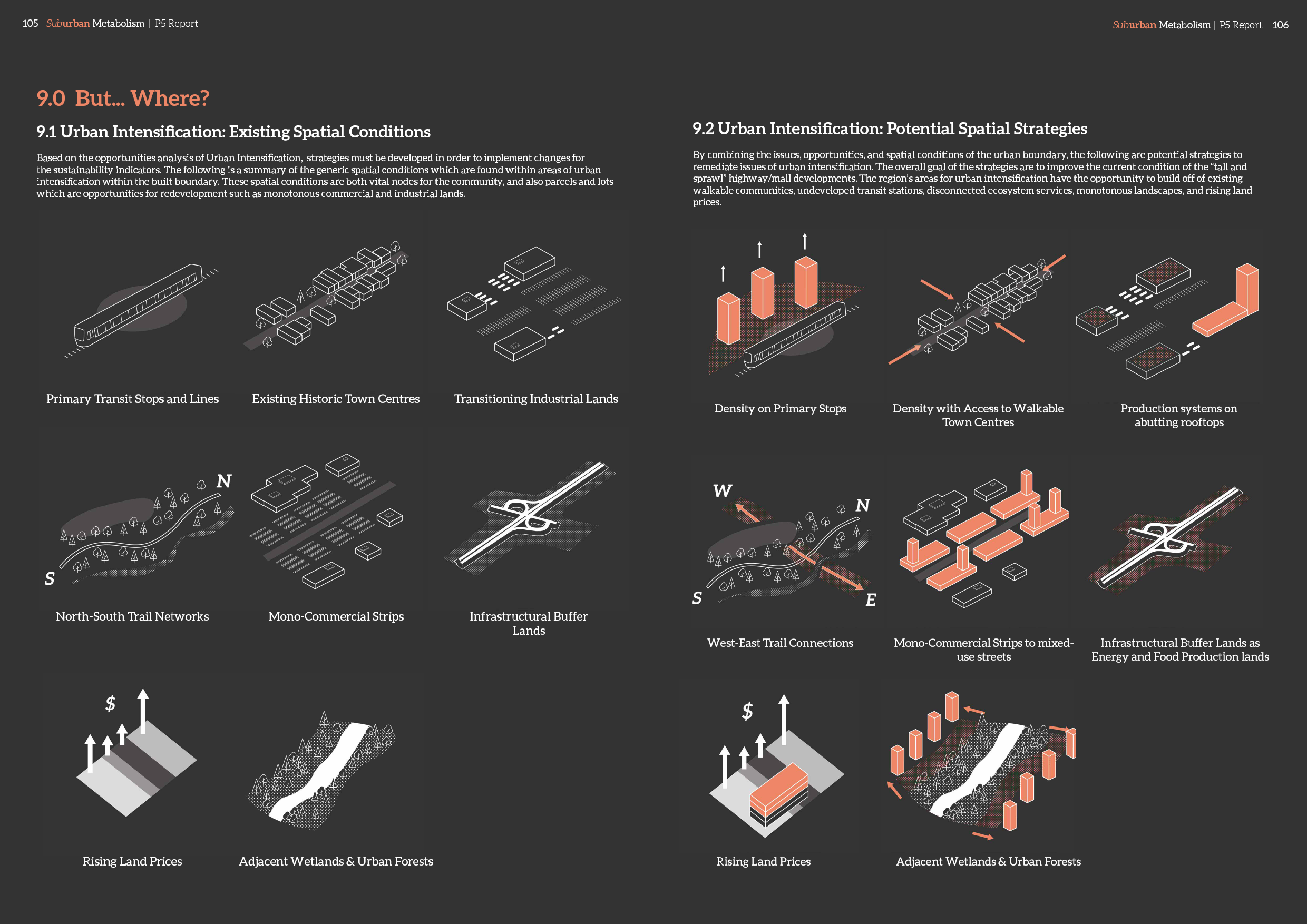Growth and Sustainability in the Greater Toronto Area
Student: Michelle Blom
Mentors: Alexander Wandl, Dominic Stead
Program: MSc Urbanism
Graduation date: 05/07/2019
Abstract
The issue of suburban sprawl in the Greater Toronto and Hamilton Area (GTA) has been increasing the pressures of land consumption, infrastructure development, resource consumption, and population growth over the past 50 years. The same can be said for many peripheral regions of Canada’s urban areas. In 2011, two thirds of the population of Canada lived in some form of suburban neighbourhood, and for the GTA a larger percentage of 86%. Though this growth continues, the vast expansions of automobile-dependent neighbourhoods have shown to have prolonged effects on resource consumption, carbon emissions, ecosystem devastation, declining health rates, social segregation, and the destruction of available agricultural land in Ontario. Yet these problems are not new. Neither are the solutions. Suburbs have been the centre of angst for many contemporary urban planners in North America for over thirty years. This has been the motivation for theories such as New Urbanism, Smart Growth, and Sustainable Development, three ideologies which have already been integrated into Provincial and Municipal Policies in Ontario. Most of which are focused on general themes of traditional aesthetics and densities of suburban development and most of which have failed to change the form of suburban development in Ontario. In order to explore these issues, this project looked at the current consumption data through ecological footprint analysis. The largest contributors to consumption included housing (energy), mobility, food, and threats to ecosystem services. In order to explore sustainability in the region, these themes were broken down into indicators which would analyse the growth patterns of the city. In order to compare these findings to current and future growth, growth typologies were created and ranked on performance through the process. Based on the performance conclusions, strategies, scenarios, and future recommendations were developed for future growth planning in the region.
Subject
Urbanism
Suburban
Sprawl
Urban Metabolism
Sustainability
Urban Growth
Urban Expansion
Toronto
Canada
North America




